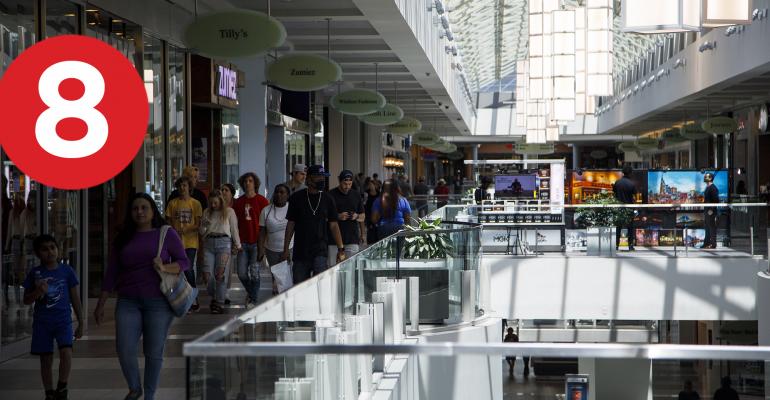- Chattanooga-Based Mall Owner CBL Expects Chapter 11 Bankruptcy; Enters Into Restructuring Support Agreement “CBL Properties on Wednesday said it expects to file for Chapter 11 bankruptcy no later than Oct. 1 as it has entered into a restructuring support agreement with noteholders that eliminates about $900 million in debt and at least $600 million in other obligations. The agreement also significantly lengthens the maturity schedule of the debt for the Chattanooga-based shopping center company whose properties have come under stress due to coronavirus-related closings and retailer bankruptcies.” (Chattanooga Times Free Press)
- Virus Alters Where People Open Their Wallets, Hinting at a Halting Recovery “Strict lockdowns ended weeks ago, but many people across the country are still avoiding malls, restaurants and other businesses. The shift in behavior points to a reshaping of American commerce, fueling questions about the strength and speed of the economic recovery as the coronavirus continues to spread.” (The New York Times)
- U.S. Private Equity Giant Banishes Staff from the Office from 14 Days If They Use Buses or Trains, Over Coronavirus Fears “Employees at global asset manager Carlyle Group have been told to avoid public transport when offices reopen around the world. They must avoid public transport on their commute, and if they use public transport over weekends, they should work from home for 14 days, according to one report. Staff are expected to walk, bike or drive to the company’s offices, including in New York and Washington, D.C. as it looks to control the spread of the coronavirus and avoid staff outbreaks.” (MarketWatch)
- A Student Housing Developer Is Facing Congressional Scrutiny After It Pressured Colleges to Bring Back Kids to Campus In Order to Keep Dorms Full “Documents made public in early August showed Corvias reminded the University System of Georgia and Wayne State University of the hundreds of millions of dollars of debt it took on for their student housing projects, and that the real-estate company didn't agree with CDC guidelines on roommate numbers. Corvias' military and student work highlight what critics say are the perils of privatization, including loss of control for colleges that want to decide how to manage their students during a pandemic.” (Business Insider)
- What Amazon’s Lord & Taylor Move Means for NYC Office Work “E-commerce behemoth Amazon will open a 2,000-person office at the former Lord & Taylor flagship on Fifth Avenue, the company announced this morning.” (Commercial Observer)
- Why Shopping Center REITs Can Withstand Coronavirus Earnings Hit “The shopping center REITs that Moody’s rates own and operate high-quality real estate portfolios; 89 percent of the REITs are grocer-anchored focused, with average grocer sales ranging from $570 to $712 per square foot—well exceeding the national average of $450 per square foot. The highly productive grocery stores highlight the quality of the operators, underpinning the likely durability of the shopping centers during and after the pandemic.” (Commercial Property Executive)
- SF Tenants Seeing One Benefit of Lockdown—Landlords Willing to Reduce Rent “The coronavirus pandemic has ravaged San Francisco’s neighborhoods, leaving boarded-up storefronts and empty apartments as thousands of workers vacate pricey apartments for less expensive cities with more spacious housing options from which to work from home. But the news isn’t all bad for people willing and able to stick in out in the beleaguered city. Thousands of tenants across the city are using the deteriorating rental market as an opportunity to negotiate double-digit rent reductions.” (San Francisco Chronicle)
- Lawsuit Says Giant Mall REITs Are Licensed to Spy “Los Angeles malls are largely closed now, but if they were open mall goers would be spied on. That’s the main allegation in a lawsuit filed earlier this year, which moved this week into California federal court. A proposed class action of mall patrons sued ‘smart parking’ security companies and mall landlords in L.A. County for the unauthorized capturing of license plate images. License plate recognition technology is deployed at large malls for security purposes, but also parking payment.” (The Real Deal)
0 comments
Hide comments

